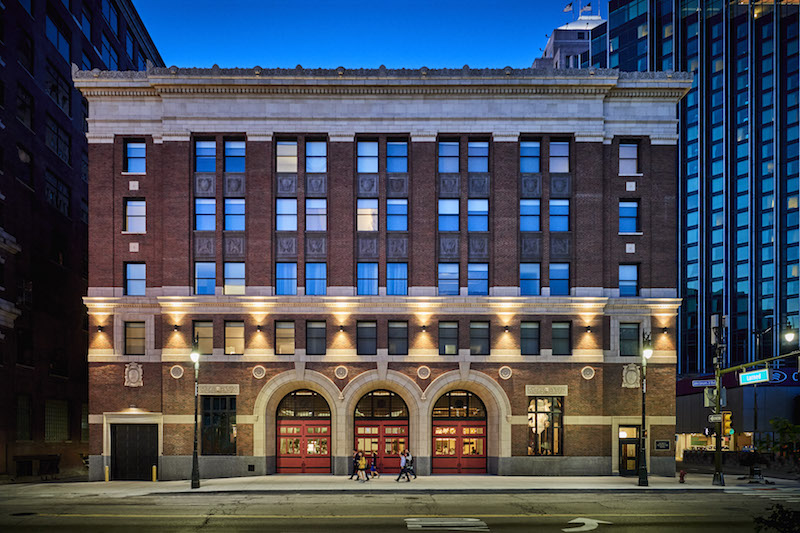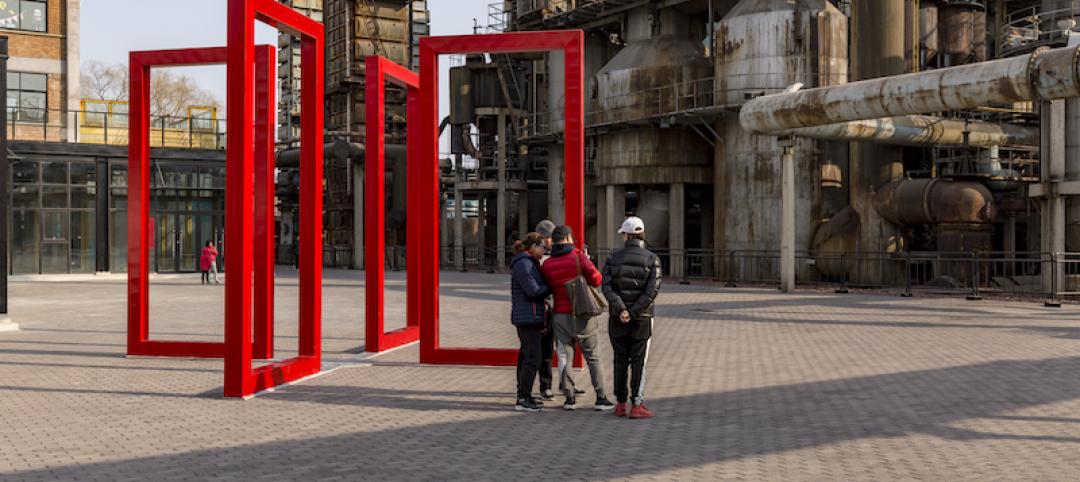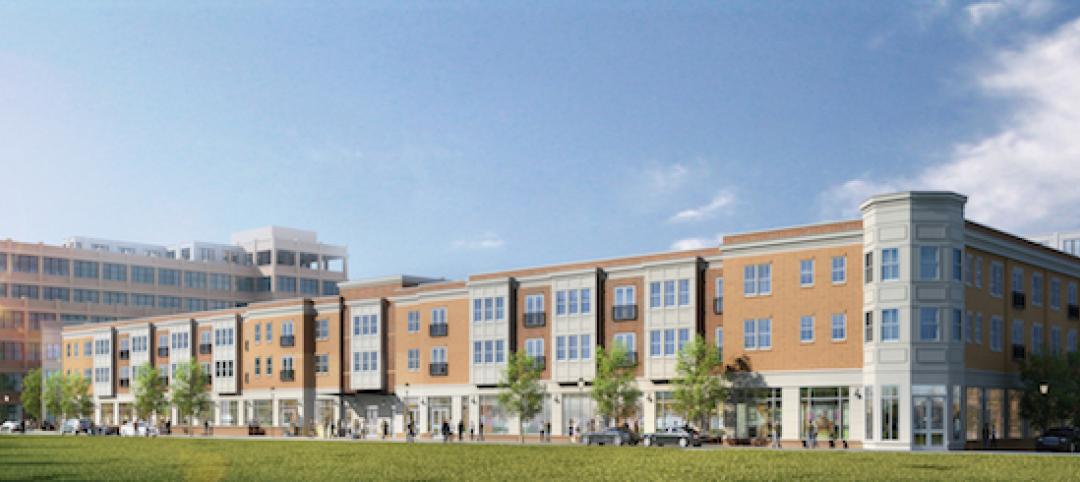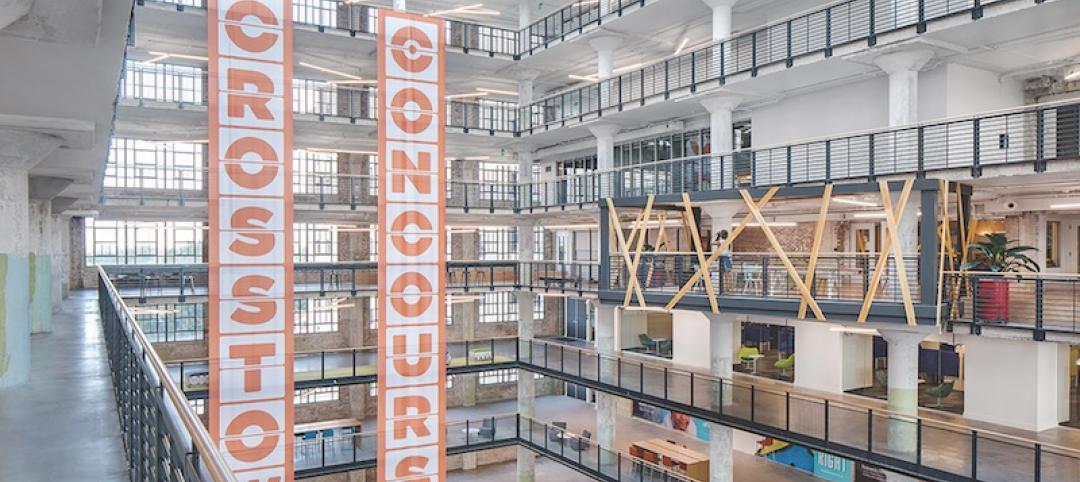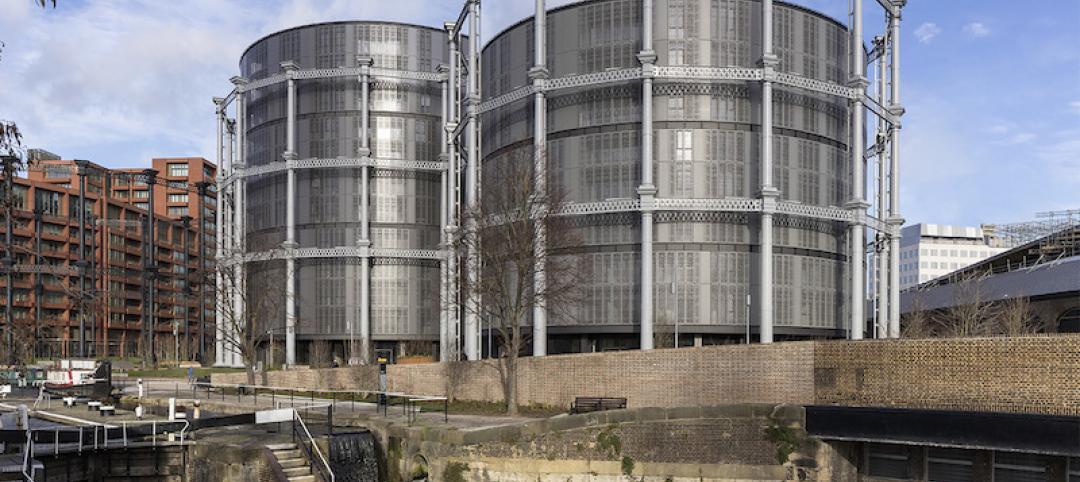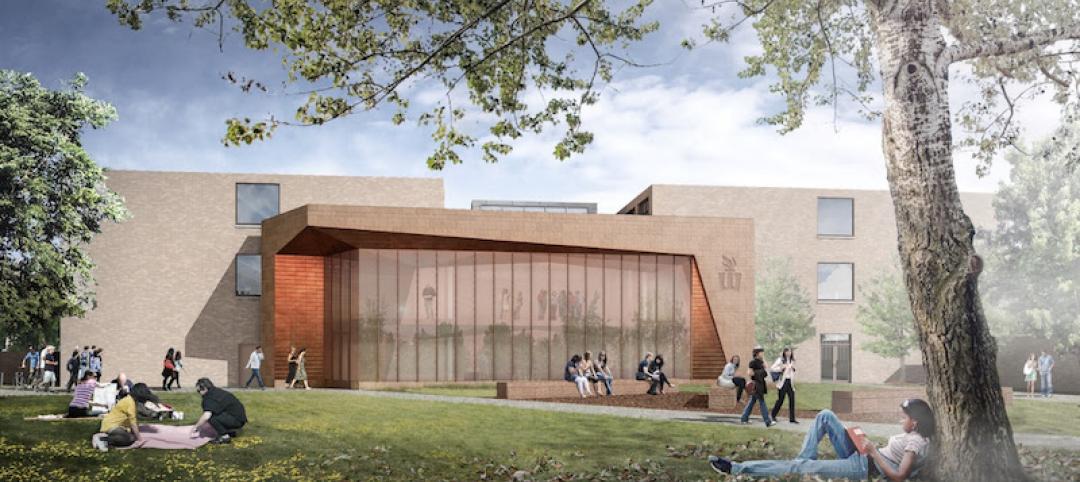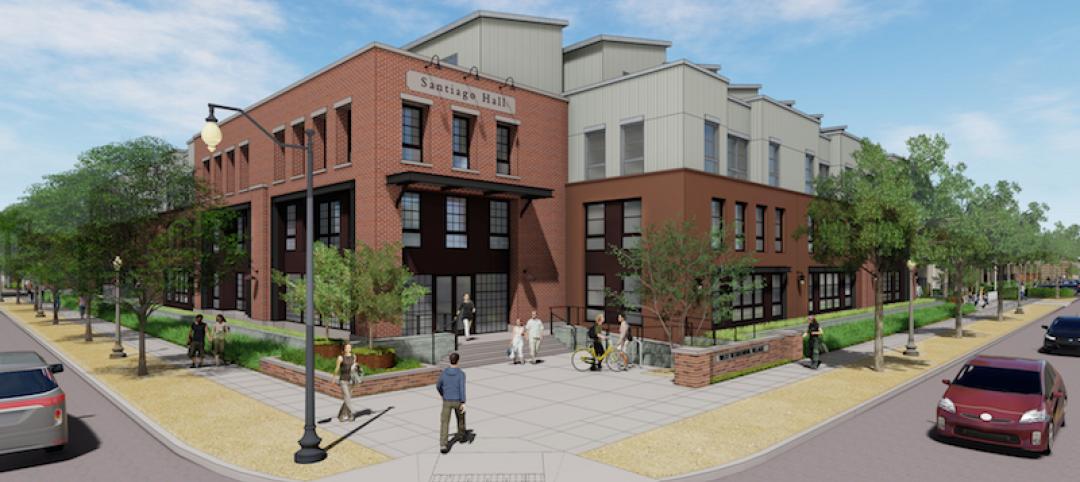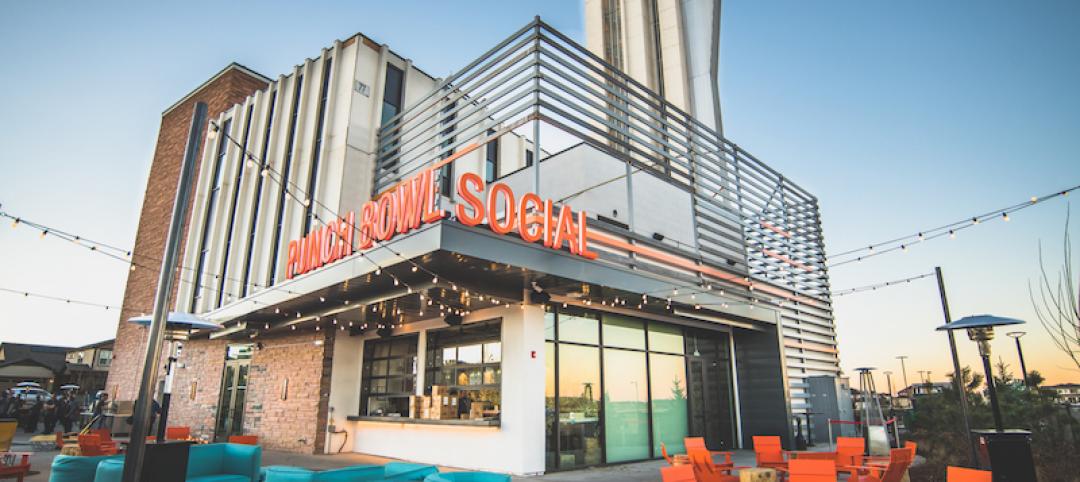The Detroit Foundation Hotel, an adaptive reuse and merging of two historic buildings, has emerged as one of the hotter downtown boutique spots serving the Motor City’s recovery.
The five-story, 100-key hotel, which opened on May 12, recently took home best honors in the Upscale category at the 37th annual Gold Key Awards for Excellence in Hospitality Design.
Detroit-based McIntosh Poris Associates, the lead designer on this $28 million project, converted the former Detroit Fire Department headquarters, which dates back to 1929, and the adjacent Pontchartrain Wine Cellars. Both were historically registered buildings.
The buildings’ existing facades were repaired, restored, or replaced, as were the firehouse’s decorative terra cotta panels with firehouse themes, like busts of firefighters, gryphons at a fire hydrant, and winged serpent-tailed figures flanking a shield proclaiming “DFD.”
The terra cotta-arched entrance of this Neoclassical hotel brings guests into a story-and-a-half space that once housed fire engines. On the first floor is a two-star-rated restaurant called The Apparatus Room and a private dining room
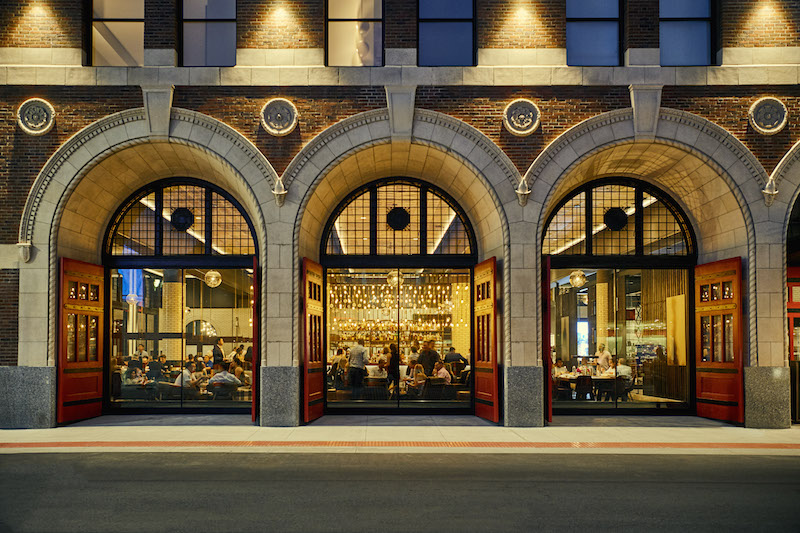 The doors of the old firehouse were restored, and lead guests into a story-and-a-half area that used to contain fire engines and now features a restaurant and private dining room. Image: McIntosh Poris Architects
The doors of the old firehouse were restored, and lead guests into a story-and-a-half area that used to contain fire engines and now features a restaurant and private dining room. Image: McIntosh Poris Architects
Because of to the five-foot floor height difference between the two historic buildings, the architects varied the spaces throughout the hotel with 55 room types. Local artists who took part in the hotel renovation include Detroit Wallpaper Co. and Architectural Salvage Warehouse Detroit, according to the Detroit News.
The hotel’s amenities include complimentary Wi-Fi, a 24-hour fitness center, same-day laundry and dry cleaning, available valet service, complimentary bike rental, and a business center. This month, the high-end regional mall Somerset Collection opened a pop-up, lounge-style retail gallery at the hotel, featuring curated products such as furniture and luxury throws from the mall’s 180 stores.
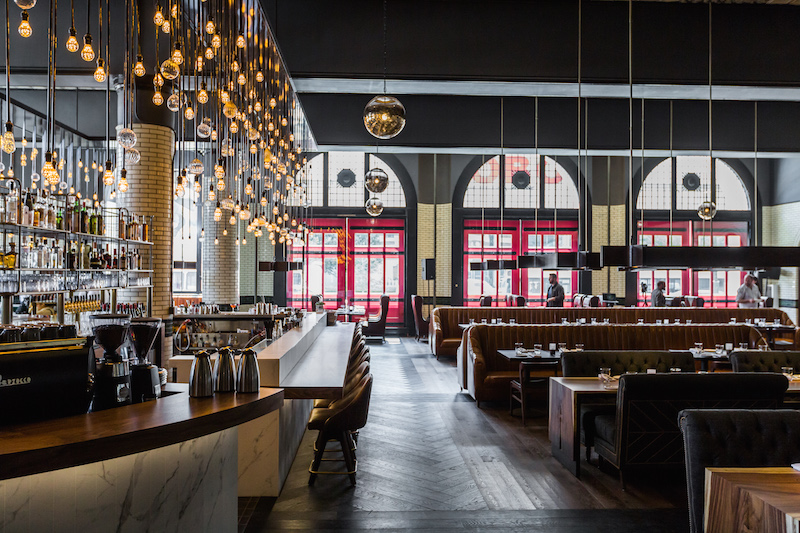 An interior view of The Apparatus, a two-star restaurant on the first floor of the Detroit Foundation Hotel. Image: McIntosh Poris Architects
An interior view of The Apparatus, a two-star restaurant on the first floor of the Detroit Foundation Hotel. Image: McIntosh Poris Architects
The opening of the Detroit Foundation Hotel reflects increasing room demand in line with this metro’s ongoing recovery and economic growth. Next fall, a 130-room Shinola Hotel, which Dan Gilbert’s Bedrock Real Estate is developing, is scheduled to open.
Year-to-date through September 2017, the metro Detroit hotel market posted a 0.4% increase in its occupancy rate and a 5.6% rise in its average daily rate. This resulted in an overall 6% increase in revenue per available room when compared to the same period in 2016.
The Building Team on the Detroit Foundation Hotel project included Aparium Hotel Group (owner), Simeone Deary Design Group (interior design, positioning/graphics, and branding), Sachse Construction (GC), MA Engineering (MEP); Structural Design, Inc. (SE), Giffels Webster (CE traffic engineer); Illuminart (lighting design); Soundscape (acoustical design); Kraemer Design Group (historic preservation consultant); Next Step Design (food service consultant); and Sorbis (low voltage design).
Related Stories
Adaptive Reuse | Jun 4, 2018
Pop-up retail market on Chicago’s Randolph Street will be made of repurposed shipping containers
Related Midwest will open the market at 725 W. Randolph St. later this week.
Adaptive Reuse | May 7, 2018
A decade after it debuted, Beijing’s 798 Arts District is still a work in progress
China’s third-most-popular tourist attraction remains a magnet for creative tenants.
Adaptive Reuse | Apr 26, 2018
Edison Lofts building is New Jersey’s largest non-waterfront adaptive reuse project
Minno & Wasko Architects & Planners designed the building.
Adaptive Reuse | Mar 8, 2018
LEED Platinum for Memphis industrial reuse project
Memphis-based engineering firm OGCB and contractor Grinder Tabor Grinder led the removal of 54 million lb of concrete and 10 million lb of metal.
Multifamily Housing | Feb 27, 2018
Victorian era gasholders become modern residences in London
The new residences are part of the King’s Cross redevelopment scheme.
Education Facilities | Jan 8, 2018
Three former school buildings are repurposed to create mini-campus for teacher education
The $25.3 million project is currently under construction on the Winona State University campus.
Adaptive Reuse | Jan 4, 2018
Student housing development on Chapman University campus includes adaptive reuse of 1918 packing house
The Packing House was originally built for the Santiago Orange Growers Association.
Adaptive Reuse | Nov 29, 2017
‘Eat-ertainment’ establishment grants abandoned air traffic control building a second life
The concept’s design reflects the golden age of flight.
Adaptive Reuse | Nov 10, 2017
Austin’s first indoor shopping mall becomes Austin Community College’s new digital media center
Renovation of the defunct mall represents Phase 2 of ACC’s $100 million adaptive reuse project.
Adaptive Reuse | Oct 23, 2017
A tableware storage space is reset to accommodate an investment firm’s headquarters in Raleigh, N.C.
This adaptive reuse establishes more direct visual and physical connections to a growing city.


